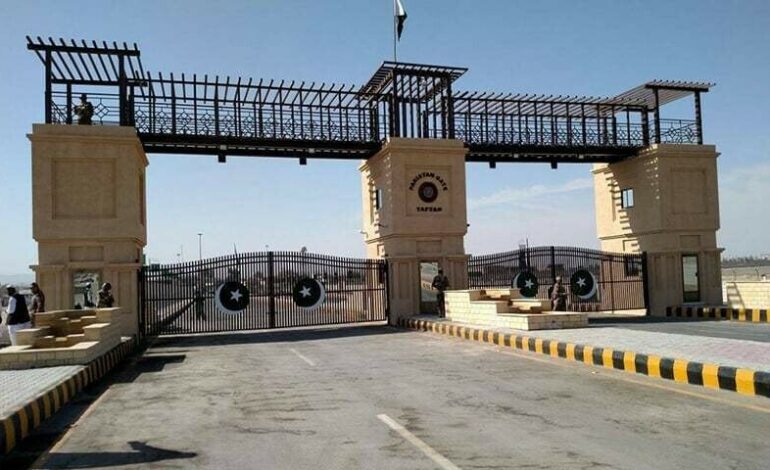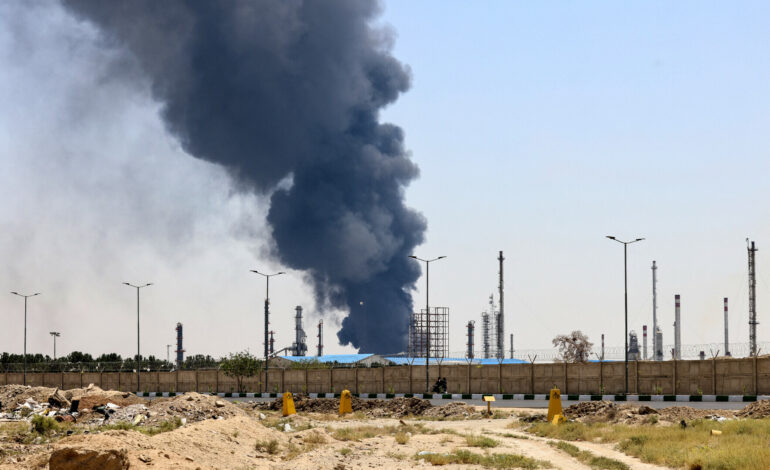
Pakistan Closes Iran Border Crossings in Balochistan Amid Escalating Regional Tensions
Amid rising regional instability following Israel’s recent strikes on Iran, the Balochistan government has ordered the indefinite closure of all border crossings with Iran in the districts of Turbat, Panjgur, and Gwadar. The move, announced on Sunday, is a precautionary measure in light of the deteriorating security situation.
The decision coincides with efforts by the Pakistani government to evacuate its nationals stranded in Iran and Iraq as tensions escalate between Tehran and Tel Aviv.
Border Closures in Balochistan
In official statements issued by the deputy commissioners (DCs) of the affected districts, the Balochistan provincial administration confirmed the suspension of all cross-border movement and travel corridors adjacent to Iran.
The Gwadar DC’s office announced the closure of the Gabd-Kalato 250 border route “until further notice,” citing instructions from the provincial government. Citizens were urged to stay informed and reach out to local authorities for guidance.
Similarly, the Panjgur administration halted all cross-border traffic and fuel transport, including pedestrian movement, warning that the regional climate remains unpredictable and potentially dangerous. The Panjgur DC called on the public to cooperate fully and avoid unnecessary travel in order to prevent any “unexpected situation.”
Evacuation of Pakistani Nationals Underway
Meanwhile, Foreign Minister and Deputy Prime Minister Ishaq Dar confirmed the safe evacuation of 450 Pakistani zaireen (pilgrims) from Iran earlier in the day, with further evacuation efforts ongoing from both Iran and Iraq.
“Arrangements are in place to safely evacuate Pakistani students and pilgrims still in Iran. The first batch includes 154 students,” Dar stated in a post on X (formerly Twitter).
He added that the Foreign Office’s Crisis Management Unit is operating 24/7 and can be contacted for assistance. Pakistani embassies in the region are coordinating closely to provide support to affected citizens.
Dar also noted that the embassy in Iraq is actively supporting pilgrims stranded due to airspace closures, working to ensure their safe accommodation and possible evacuation.
Pakistan Urges Caution and Suspends Travel Plans
Following the escalation, the Foreign Office advised Pakistani citizens to reconsider or delay travel to Iran and Iraq due to the rapidly evolving situation. Prime Minister Shehbaz Sharif also directed relevant authorities to provide every possible assistance for the safety and return of Pakistani nationals abroad.
The FO confirmed that Pakistan’s Ambassador to Iran, Mudasir Tipu, is currently in Islamabad for official meetings but emphasized that the embassy in Tehran remains operational and fully engaged under the guidance of the foreign minister.
Pakistan and Turkiye Voice Regional Concerns
Foreign Minister Dar held a telephonic conversation with Turkish Foreign Minister Hakan Fidan on Sunday. Both leaders expressed deep concern over the worsening regional crisis, condemning Israel’s airstrikes on Iranian territory.
Dar also confirmed his participation in the upcoming Organisation of Islamic Cooperation (OIC) Council of Foreign Ministers (CFM) meeting, as well as the Islamic Cooperation Youth Forum (ICYF) ceremony scheduled in Istanbul next week.
Prime Minister Shehbaz had earlier affirmed that Pakistan would be represented at the OIC CFM session and extended congratulations to Turkish President Recep Tayyip Erdoğan for being honored by the ICYF.
The OIC Foreign Ministers’ meeting is scheduled for June 21–22 in Istanbul and is expected to address the rapidly escalating Middle East crisis.






